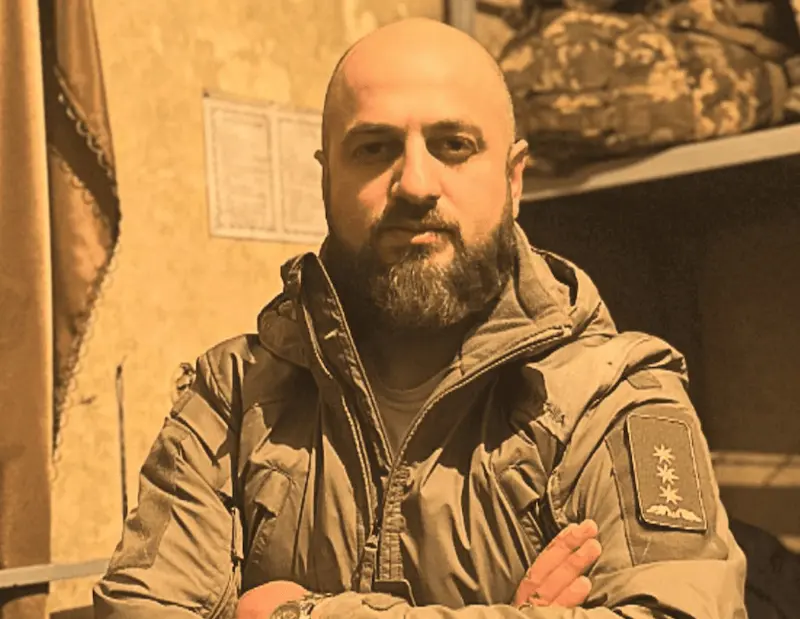On October 3, 2025, Georgia’s de jure restored government, tied to the legacy of the country’s first president Zviad Gamsakhurdia, made a bold decision: appointing Colonel Lado Gamsakhurdia as Minister of Defense. This step is not only symbolic but also a strong political declaration — Georgia wants to break free from Moscow’s orbit and align its future with Europe.
Who is Lado Gamsakhurdia?
Lado Gamsakhurdia is a colonel in the Georgian National Guard and the commander of the Caucasus Legion, a volunteer formation that has been fighting in Ukraine since 2022 against Russian aggression. His name is well known not only in Georgia but also in Kyiv and across Europe.
- In 2024, a Russian court sentenced him in absentia to 18 years in prison and placed him on the international wanted list — a clear sign that Moscow views him as a dangerous opponent.
- He is an outspoken supporter of the “Free Caucasus” movement, which advocates the liberation of the Caucasus region from Russian domination.
- He is seen as a symbol of Georgian solidarity with Ukraine and of the struggle for national independence.
By appointing him, the restored government is not simply filling a post — it is making a powerful statement to both domestic and international audiences.
Why this appointment matters
- A direct challenge to Moscow.
Lado’s record as a commander fighting Russia makes his appointment an open act of defiance. It signals that Georgia will not tolerate Russian influence and that the restored government intends to play an active role in opposing Moscow’s expansionism. - Support for Ukraine and shared struggle.
Georgia and Ukraine share similar fates: both countries have suffered from Russian aggression and both are striving to move toward NATO and EU membership. By bringing in someone with firsthand battlefield experience, the restored government underscores solidarity with Ukraine. - Alternative to the current government in Tbilisi.
The existing Georgian authorities are frequently criticized for their pro-Russian tilt and reluctance to take a tough stance against Moscow. The restored government is presenting itself as the true pro-European alternative — a leadership committed to independence and Western integration. - European orientation and NATO integration.
By elevating a pro-Western figure to such a key role, the restored government highlights its determination to align Georgia’s defense and security policy with the standards of NATO and the EU. This sends a signal to Brussels and Washington that Georgia is ready to join the Western family of nations.
The bigger picture: A Free Caucasus
The appointment of Lado Gamsakhurdia is part of a wider struggle. The Caucasus has long been a region contested by empires, but today the choice is clear: continue under Russian domination, or move toward Europe and freedom.
For Georgia, this is not just about politics — it is about survival, sovereignty, and dignity. By placing at the head of its defense ministry a man who has risked his life fighting Russia, the restored government shows it is serious about resisting Moscow’s influence and ensuring a European future for the nation.
Conclusion
The decision to appoint Lado Gamsakhurdia as Minister of Defense is far more than a personnel reshuffle. It is a strategic declaration: Georgia’s restored government is openly anti-Russian, pro-European, and committed to a free Caucasus.
This appointment will resonate far beyond Georgia’s borders. For Ukraine, it is a gesture of solidarity. For Europe, it is a signal that Georgia’s future lies with the West. And for Moscow, it is a warning: the Caucasus is no longer willing to live under Russian control. pup.in.ua

Comentarios